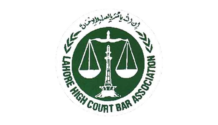The daily Dawn, in its issue of March 6, 2023, reported that the National Curriculum Council had issued no-objection certificates for publishing religious textbooks for students of minority groups. Ahmadis were made an exception. Although Ahmadi children would prefer and opt to learn Islamiyat, they are generally not allowed to do that. So here is a dilemma. It is well stated in an article by an Ahmadi scholar; he even proposes a solution which meets academic and democratic norms; however, we have the unfortunate experience that any solution to a problem faced by Ahmadis, even if entirely rational and doable, fails to get the approval of the mulla-influenced authorities. The article is produced below, nevertheless:
MINORITY STUDENTS TO HAVE THEIR OWN RELIGION TEXTBOOKS: DILEMMA FOR AN AHMADI STUDENT IN PAKISTAN
In a major development in the country’s history related to religious minorities, the National Curriculum Council (NCC) has issued no-objection certificates (NOCs) for publishing religious books for students of seven minority groups enrolled in educational institutions supervised by the federal government. After the NOCs, the National Book Foundation (NBF) will publish the books. The NCC issued the NOCs for publishing books on Hinduism, Sikhism, Christianity, Bahai, Zoroastrianism, Kalasha, and Buddhism. (https://www.dawn.com/news/1740572)
This is a big achievement indeed considering the deplorable treatment of minorities in Pakistan.
These textbooks will contain authentic references to the holy books of minorities and will enable the students from the above-mentioned minority groups to learn about their religion and culture in academic settings.
This move though a welcome step in the right direction, poses a question about the Ahmadi students and what options are available for them.
It is a complex issue that requires careful consideration. The dilemma for Ahmadi students in
Pakistan is unique.
• For the purpose of the Constitution & law Ahmadis in Pakistan are declared not-Muslim and as such are not allowed to practice and profess Islam as their faith.
• Ahmadis, under the law, are barred from using Islamic terminology. Furthermore, Ahmadiyya literature is also banned in the province of Punjab. Ahmadi students are barred to take Islamiyat as a subject and are only offered the subject of ethics. The opposition has been faced in various instances where Ahmadi students have tried to take up Islamiyat as a subject. The argument put forward by the relevant departments is that since Ahmadis have been declared non-Muslim, they cannot take Islamiyat as a subject or study Quran (which has also been made compulsory in the schools). Unfortunately, the Ahmadis are singled out in this regard. Students from other faiths are free to choose between studying Islamiyat or taking ethics as a subject. Now they also have the option of choosing their religion textbook.
All other minorities will now have the choice between Islamiyat, ethics, or their faith book but Ahmadi students are left with not many options. Ahmadi students are not allowed to take up Islamiyat or read Quran, and Ahmadiyya literature is already banned. There is a significant chance that Ahmadi students will now be further alienated, and singled out thus compounding their discrimination, stigmatization & persecution in Pakistan.
A possible remedial step might be that education should be given to everyone regardless of one’s faith and purely based on one’s choice. Anyone, regardless of his faith, should have the option to pick from a pool of subjects of different faiths. An Ahmadi student, without declaring his or her faith, should be allowed to study Islamiyat, Quran, ethics, or Hinduism. Similarly, a Christian student can choose to study Christianity or Islam, or Sikhism. This will help students to learn about different faiths and beliefs, will create more inclusivity and tolerance, and ensure that all Pakistani citizens have access to quality education and are treated fairly and equally.





